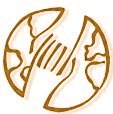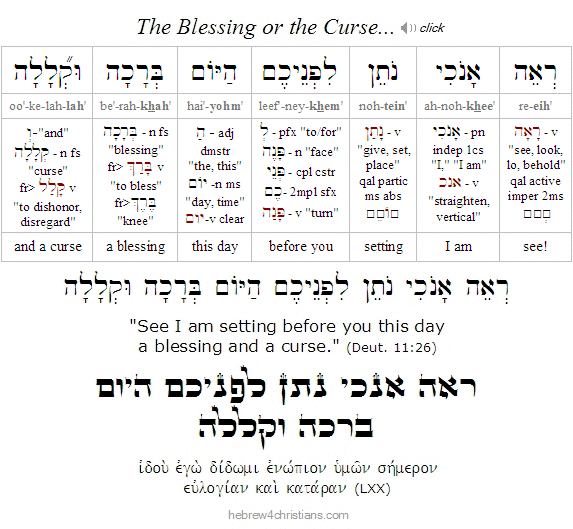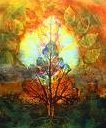|
THIS WEEK'S PARASHAH BEGINS WITH the portentous words: "See (רְאֵה), I give before you today a blessing and a curse" (Deut. 11:26). Note that the word re'eh is singular ("you see!"), whereas the following pronoun is plural ("before you today"). Each person is to personally see that the blessing and the curse will affect others in our lives. This has traditionally been understood to mean that God gives each of us the path of goodness (that leads to blessing) and the path of wickedness (that leads to curse). The singular form is used to stress the fact that although Torah is given to all "who have ears to hear," it is our personal responsibility to "choose life!" and walk its message out in our daily lives (Deut. 30:19). This is an Either/Or of the heart, and there is no place for compromise in this decision. Moreover, since your life is part of a greater whole, you must understand that every deed you do brings to the world around you either a blessing or a curse.... To "correct" the world you live in (תיקון עולם), you must first correct yourself (Matt. 7:5).

An undisputed maxim among the sages of the Talmud is: "All is in the hands of God except the fear of heaven (yirat shamayim)" (Berachot 33b; Niddah 16b). But note something here. The Hebrew word for seeing (ראה) and the word for fearing (ירא) share the same root. We cannot genuinely "choose life" apart from personally seeing it, and we cannot see it apart from encountering its truth (or reality). We must individually focus our minds and attend to the revelation of God -- both written (i.e., in the testimony of Scripture) and unwritten (i.e., in the manifest evidences of creation). The reverence of God sanctifies our perception and enables us to see clearly. Therefore the righteous "walk by faith, not by sight" (2 Cor. 5:7).
Perhaps this is why the perpetual enemy of God is called "Amalek" (עֲמָלֵק), a name that begins with Ayin (symbolizing the eye) and whose value (in gematria) is 240 -- the same value for safek (סָפֵק), the Hebrew word for doubt. Amalek therefore suggests "the eye of doubt," or even "the severed eye" (the Hebrew verb מָלָק means "to chop" or "sever" in reference to the "eye" of Ayin). Unbelief is a spiritual blindness that makes it impossible to see the path of blessing....
Unlike the doubtful Amalek, we walk in emunah (faith) with ayin ha-tovah ("the good eye") of trust. And we must be unflinching in our devotion to the truth, chaverim. Regarding the rise of the false prophet, for example, we are told that "the LORD your God is testing you (מְנַסֶּה יְהוָה אֱלהֵיכֶם) to know if your really love the LORD your God with all your heart and with all your soul" (Deut. 13:4). All who love the LORD will love the truth and will take the time and effort to clear away the confusion by "testing the spirits" (1 John 4:1).
Concerning this matter of testing, while we know that we're not permitted to test (נסה) the LORD (Deut. 6:16, Matt. 4:7; Acts 5:9), we are permitted to do so regarding the matter of tzedakah (charity) and the offering of our tithes (Deut. 14:22, cp. Mal. 3:10).
הָבִיאוּ אֶת־כָּל־הַמַּעֲשֵׂר אֶל־בֵּית הָאוֹצָר
וִיהִי טֶרֶף בְּבֵיתִי וּבְחָנוּנִי נָא בָּזאת אָמַר יְהוָה צְבָאוֹת
אִם־לא אֶפְתַּח לָכֶם אֵת אֲרֻבּוֹת הַשָּׁמַיִם
וַהֲרִיקתִי לָכֶם בְּרָכָה עַד־בְּלִי־דָי
ha·vi·u et kol ha·ma·a·ser el bet ha·o·tzar,
vi·hi te·ref be·ve·ti uv'cha·nu·ni na ba·zot, a·mar Adonai Tze·va·ot
im lo ef·tach la·khem et a·ru·bot ha·sha·ma·yim,
va·ha·ri·ko·ti la·khem be·ra·khah ad be·li dai

"Bring the full tithe into the storehouse, that there may be food in my house.
And thereby put me to the test, says the LORD of hosts,
if I will not open the windows of heaven for you
and pour out for you blessing immeasurable."
(Malachi 3:10)

Of course this verse from the Torah has been grievously abused by unscrupulous TV preachers, etc., but that doesn't mean we should disdain the opportunity to receive blessing from heaven by conscientiously giving as the LORD directs us.... After all, "tzedakah saves from death," and the only thing we can "take with us" when we die is what we have freely given away to others in service to God...
Here is a parable that speaks along this line:
There once happened that a person gave 100 measures as his ma'aser (tithe) each year, for every 1000 measures of grain that grew. In his will, he commanded his son to always take ma'aser properly.
The first year, the son gave a tenth of 1000 measures, but then he said to himself, "How can I give so much as a tenth?" The next year he gave only 90 measures, but then only 900 measures grew. The third year he gave only 80, but only 800 grew. With each ten measures that he took away, his field was diminished by 100 measures, until it yielded only 100 measures, the amount that had originally been given as a tenth....
For this reason the Torah says, Give Ma'aser so that you will be able to give it again and remain wealthy. (Tzenah Ur'enah)
The whole idea of giving is counterintuitive to the egoism of our natural perspective, and therefore the giving person testifies that he or she is seeing the truth of God's reality and kingdom in the universe.... Stated simply: Hardening our hearts to the needs of others is an act of unbelief.
A verse in our parasha speaks directly to this. Deuteronomy 15:10 says, "You shall give to him freely, and your heart shall not be grudging when you give to him, because of this thing the LORD your God will bless you in all your work and in all that you undertake." The sages note that the phrase because of this thing (בּגְלַל הַדָּבָר הַזֶּה) hints that "the world goes in a circle." Today one is rich; tomorrow the other is rich. This is inferred from the connection between the word "because" (בִּגְלַל) and the word for "circle" (גַּלְגָל), both of which share the same root (גלל). Indeed, the sages consider the act of giving (tzedakah, i.e., charity) as one of the greatest of commandments, since it is the essence of God to give to His creation, and it is through giving that we are enabled to see the Divine Presence, as it is written in Psalm 17;15, "I will see your face in righteousness (tzedakah)" (אֲנִי בְּצֶדֶק אֶחֱזֶה פָנֶיךָ).
Since our lives are part of a greater whole, we must understand that every deed we do brings to the world around us either a blessing or a curse.... But before we rush out to "bless" the world, however, we must first take pains to undergo self-examination (Matt. 7:5, 2 Cor. 13:5, Gal. 6:3-4). From a place of humility and an awareness of our own frailty are we able to genuinely help others. As Rabbi Israel Salanter once said, "When I was young, I wanted to change the world. I tried, but the world didn't change. So I decided to change my town, but my town didn't change. Then I resolved to change my family, but my family didn't change. Then I realized that I first had to change myself." (I would add, "but then I realized that I couldn't change even myself, so I cried to the LORD for a new heart and He answered my plea...")
 |
|





